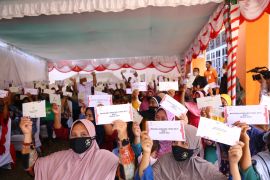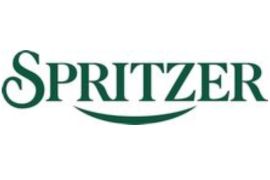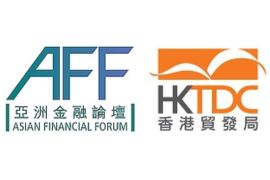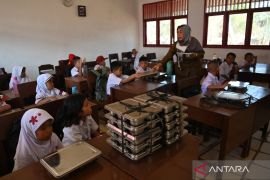The program is conducted by KUR credit distributors appointed by the government. The interest of the KUR credits is subsidized so that distributors can extend loans to recipients with lower interest rates.
The interest rates of the KUR credits the recipients had to bear was 22 percent in 2014. It was lowered to 15 percent in 2015 and nine percent this year. The government is planning to cut it further to seven percent in 2017.
In order to accelerate the distribution of KUR credits, which this year is targeted to reach Rp120 trillion, the government should guarantee the smoothness of its subsidies so that the program would not disturb the cash flow of distributing institutions.
Bank Indonesia (BI) said the government needs to be organized and disciplined in allocating the budget for subsidizing the interest of its KUR credit program for small businesses
The government needs to do that so that its target to lower the interest rate of KUR credit to seven percent by 2017 can be achieved.
"The government should be disciplined and regularly every year prepare the interest subsidies, because otherwise the KUR interest will rise to between 12 and 15 percent again," BI Governor Agus Martowardojo said in Jakarta Friday.
This year, in its effort to lower the KUR interest rate to nine percent, the government provided distributing institutions with a subsidy of Rp10.5 trillion.
The subsidy allocation so far this year has been running well, according to Agus. As a result of the KUR subsidies, KUR distributor institutions, most of which are banks, still have a healthy cash flow, despite the fact that lowering interest rates could trigger the risk of KUR margin reduction.
"This means that banks are not forced to finance the cost of interest as there is a subsidy (from the government)," he said.
On the other hand, the interest rates of banks third party funds (DPK) such as deposits in the current year have also been going down. This lowers banks cost burdens in obtaining liquidity funds, so that banks have a safe margin in cutting their credit interest.
The decline in the DPK interest could relatively compensate (if) the government plans to reduce its subsidies for the KUR credits, Agus said.
"Because, in general, the interest rates of third party funds have been going down, perhaps it provides flexibility for not fully using the subsidies as have been set in the budget," Agus explained.
The credit growth does not meet the expectations of the monetary authorities, Agus reminded. The slower growth in bank credit is predicted to hinder the realization of the KUR credit distribution which the government has targeted at Rp120 trillion in 2016.
"But we all should still first see the Rp120 trillion target this year because the credit growth in 2016 does not live up to our expectations. It is still low," he said.
Based on data at the office of the Coordinating Ministry for Economic Affairs, until September 2016, the distribution of the KUR credit reached about 65 percent of the Rp120 trillion target. These include micro credit disbursement amounting to Rp44.7 trillion and retail credit valued Rp20.5 trillion. As for the placement of Indonesian workers, the amount already realized is only Rp79.5 billion.
In the meantime, the government has added 12 banks and non-bank financial institutions (NBFIs) as KUR credit distributors in an effort to meet its target to channel Rp120 trillion subsidized credits this year.
Deputy Minister for Financing Affairs of the Ministry of Cooperatives and SMEs Braman Setyo on Monday, hoped that the addition of 12 banks and NBFIs as KUR credit distributing intuitions would accelerate the channeling of the loans to achieve the target of Rp120 trillion.
"In that way, the KUR credit distributor agencies could be aggressive in accelerating the provision of the KUR credit every month. We have increased the number of KUR distributors to 28 banks and NBFIs," Braman said on the occasion of the signing of the financing cooperation agreement between the Budget Authority (KPA) and the KUR credit distributors (bank and nonbank institutions).
The 12 banks and NBFI KUR distributors are Bank BCA, Bank Permata, Bank Sinarmas, Bank BPD Kalbar, Bank BPD NTT, Banki Agroniaga BRI, Bank Jabar Banten, Bank BPD Kalsel, Bank BPD Jambi, Bank BPD Papua, Adira Finance and Mega Central Finance.
"With a total of 28 distributor institutions, the KUR program still has eight others which have not yet passed the Program Credit Information System (SIKP), namely BRI Syariah, BPD Sumsel Babel, BPD Lampung, BCA Finance, Federal International Finance, BPD Bengkulu, BPD Sulawesi and PT Permodalan Nasional Madani," Braman said.
The realization of KUR credit disbursement up to August 29, 2016, amounted to 64.7 trillion which was provided to 2,983,417 recipients, he explained.
Of that amount, Bank BRI has distributed Rp48.723 trillion to 2.7498 million borrowers, Bank Mandiri Rp7.763 trillion to 197,438 debtors and Bank BNI Rp8.144 trillion to 32,747 customers.
The remaining amounts were disbursed by Bank Sinarmas, Bank NTT, Bank Kalbar, Bank DIY, BPD Bali, Sumatra and Bank BPD Bank.
President Joko Widodo (Jokowi) always reminds his staff on every opportunity to continue to encourage the distribution of KUR. With additional KUR distributors, it is expected that the target can be realized by the end of December 2016, according to Braman.
"Actually the target can be met in November, but there is slow disbursement and a slight decline in the KUR distribution. However, with the additional amount of KUR distributors, we are optimistic that by the end of December this year the target can be realized," Braman said.
Regardless of that fact, his ministry will continue to make efforts to enable cooperatives to take part in the KUR credit extension for small and medium-sized enterprises, Braman added.
Until now, only one cooperative has passed verification for distributing the KUR funds, namely the Kospin Jaya cooperative.
"Therefore, we hope that the Cooperatives Ministers regulation, Permenko 13/2015 would be revised so that cooperatives will have a legal umbrella while distributing KUR credits," Braman said. (*)
Reporter: Andi Abdussalam
Editor: Heru Purwanto
Copyright © ANTARA 2016











